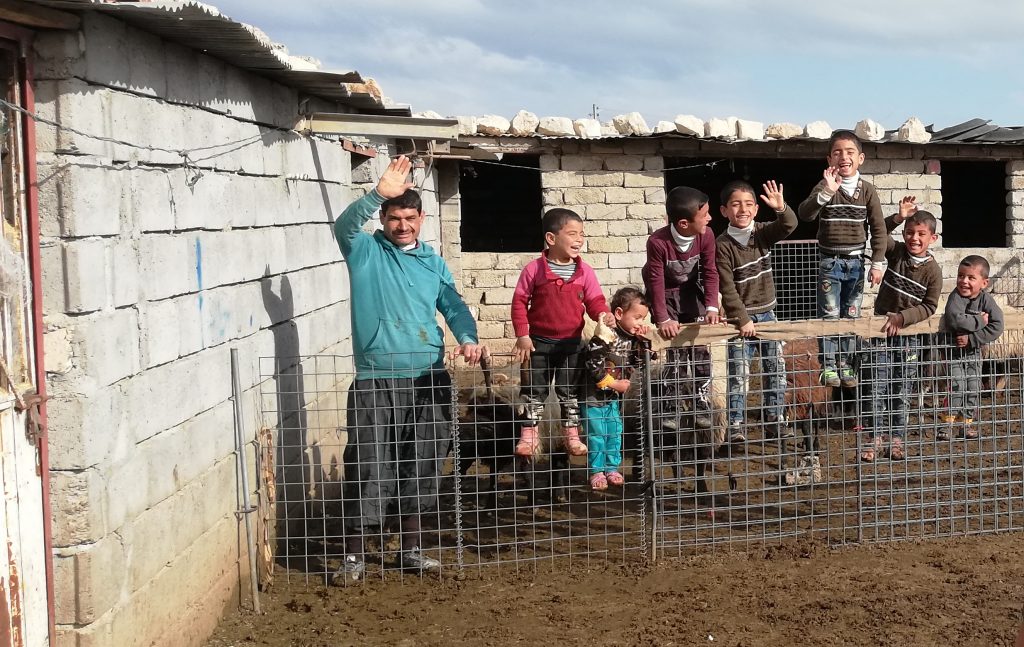From 2013 to 2020, in response to the humanitarian crises and economic crisis exacerbated by the Covid-19 pandemic, approximately € 45 millions of emergency and resilience interventions were deliberated, more than € 22,5 million of which on the multilateral channel (with main partners such as OCHA, ICRC, UNHCR, UNICEF, WFP, WHO and UNMAS) and almost € 22,5 million on the bilateral channel (humanitarian supplies, projects implemented by CSOs and direct management).
The interventions focused on KRI and neighboring areas, mainly the Ninive plain and the northern part of Salahaddin and focused on the Health, Education and Livelihood sectors contributing to improve accessibility, inclusiveness and quality of the basic services, to increase the household income and access to employment opportunities, and to protect the population from violence, coercion and deprivation. Following the defeat of ISIS in Mosul in July 2017, and the beginning of the return movement of the displaced Iraqi population to the areas of origin, the Italian Cooperation has started funding actions aimed at enabling safe and dignified returns with an approach geared towards promoting durable solutions in the context of IDPs camps closure in Iraq, in line with the humanitarian-development-peace nexus principles.
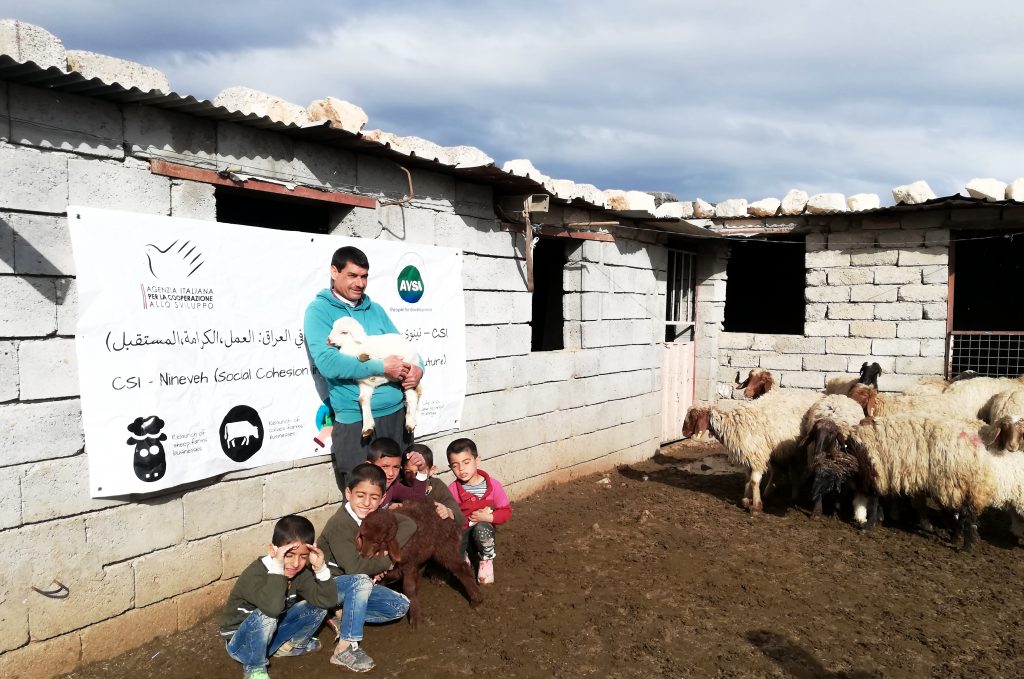
| EDUCATION |
The Italian Cooperation interventions in the Education sector aims to icrease access, quality and inclusiveness of education services, providing formal and non-formal education support, rehabilitating infrastructures and helping teachers to strengthen their skills. As in all humanitarian interventions supported by AICS, education programmes incorporate protection mainstreaming principles to promote meaningful access, safety and dignity for the children affected by the humanitarian crisis in Iraq. The provision of psycho-social support in schools addresses the need to prevent, mitigate and respond to protection threats by ensuring the fundamental protection principles, countering the impact of traumatisation on children which can manifest in depression, shame, withdrawal and aggression, increasing the the risk of school drop-out. In this regard, teachers and other care-workers are the main means through which this kind of support can be provided, making it easier to return to a normal “routine”.
| Read more on Back to School, a project implemented by COOPI in Nineve, Iraq |
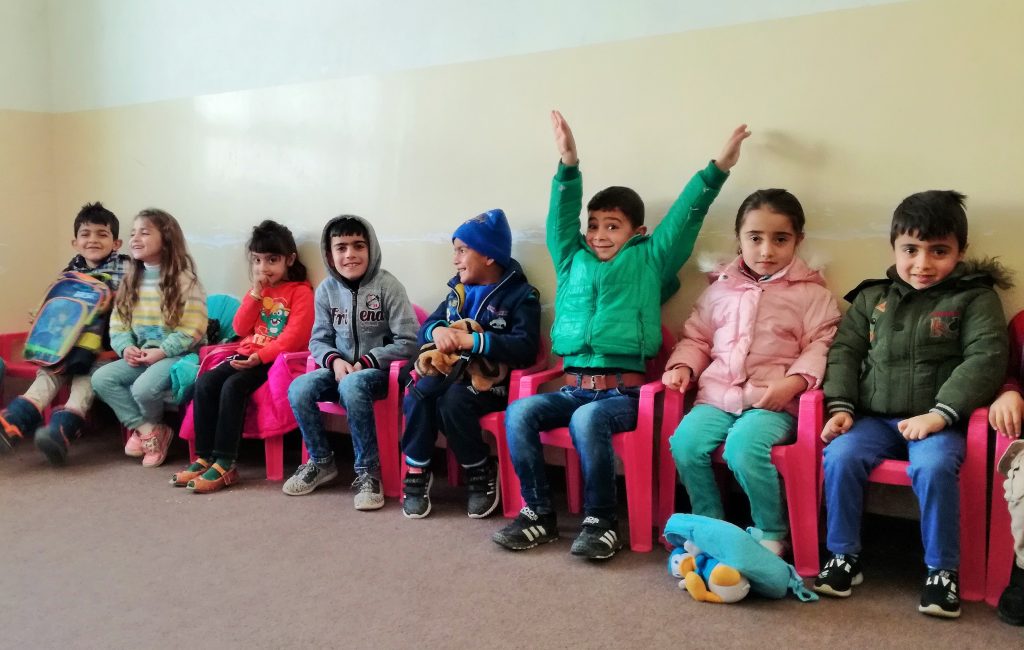
| HEALTH |
The Italian Cooperation interventions in the Health sector sustain local authorities to increase accessibility, quality and inclusiveness of basic health services with a specific focus on child health, maternal health, nutrition services, as well as integration between reproductive, psyco-social and mental health services and emergency ambulance services.
Main beneficiaries of these actions are the most vulnerable population between refugees, IDPs, returnees and host community, and particularly women and girls among them.
| Read more on Health and protection for children with disabilities, with AISPO |
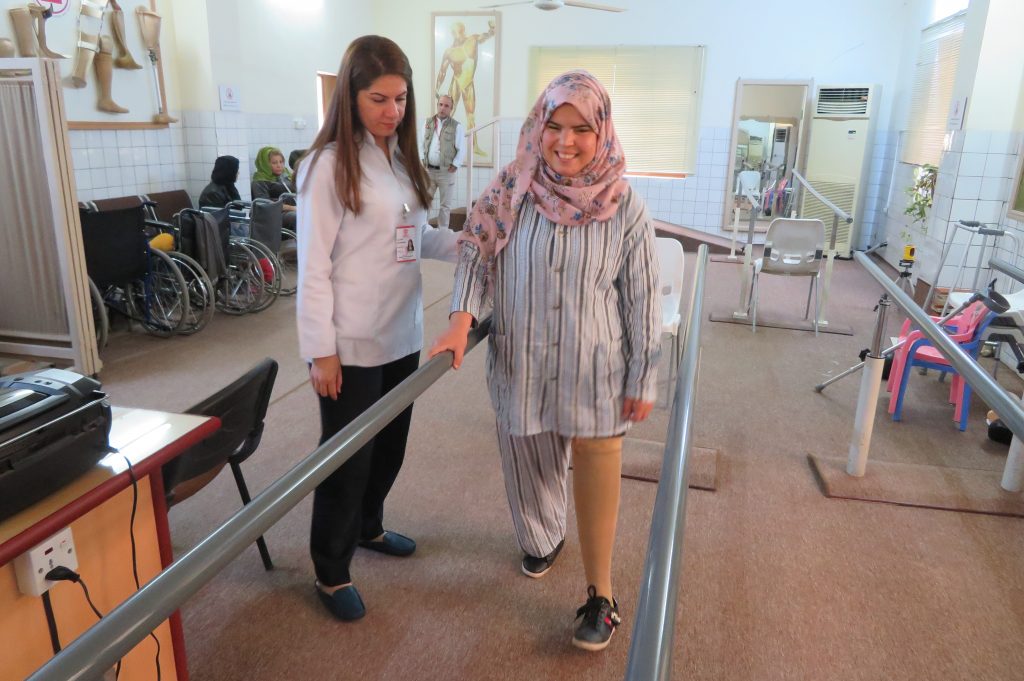
| PROTECTION |
AICS supported stand-alone protection initiatives, through interventions aimed at the protection of individuals which include both activities related to the protection obligations and responsibilities of duty-bearers’ stakeholders for the protection of civilians and to facilitate IDP families tracing and reunification.
Moreover, within the protection sector and in the framework of the efforts to create the conditions for the IDPs to safely return in the areas of origin, AICS supported mine actions interventions through humanitarian demining and mine risk education.
AICS launched in 2021 a programme aimed to counter and respond to Gender-Based Violence in KRI, supporting the local authorities to meet the requirements in terms of capacities to implement the Act of Combating Domestic Violence in Kurdistan Region, and strengthening the outreach capacities of the local Civil Societies Organisations working in the domain of GBV.
| Watch more on Iraq: Restoring mobility and hope in Mosul, with WHO |
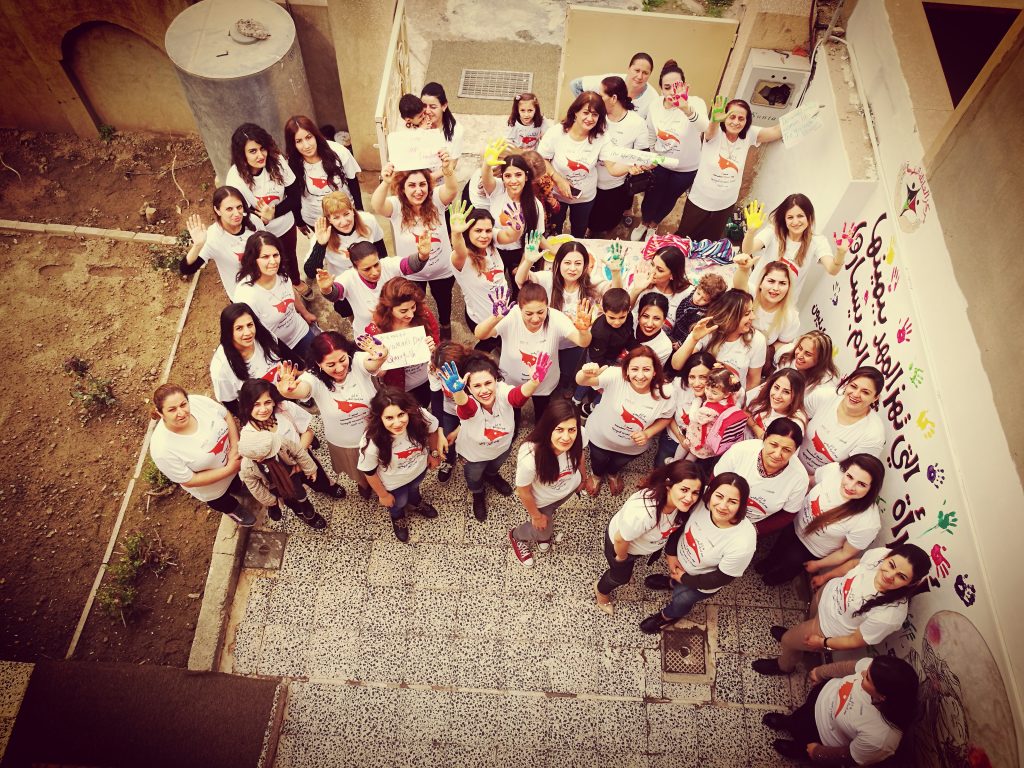
| RESILIENCE: LIVELIHOOD AND CAPACITY DEVELOPMENT |
AICS approach to resilience in the context of the humanitarian crisis in Iraq consists of both reducing the vulnerabilities and also the consequences of the crisis; it does so, on the one hand, by mitigating the risks and strengthening the capacities of the most vulnerable to absorb the shocks, such as conflicts and the severe economic crisis exacerbated by Covid-19 pandemic, and to avoid dangerous coping strategies providing livelihoods support through income generating and employment opportunities for IDPs and refugees in camps, out of camps, returnees and host communities. On the other hand, AICS seeks to improve the organisational capacities to effectively respond to the most urgent threats and risks coming from the crisis, providing support to local authorities through capacity development of governmental entities to protect the rights especially of the most vulnerable.
| Read more on We women, stories from the field |
